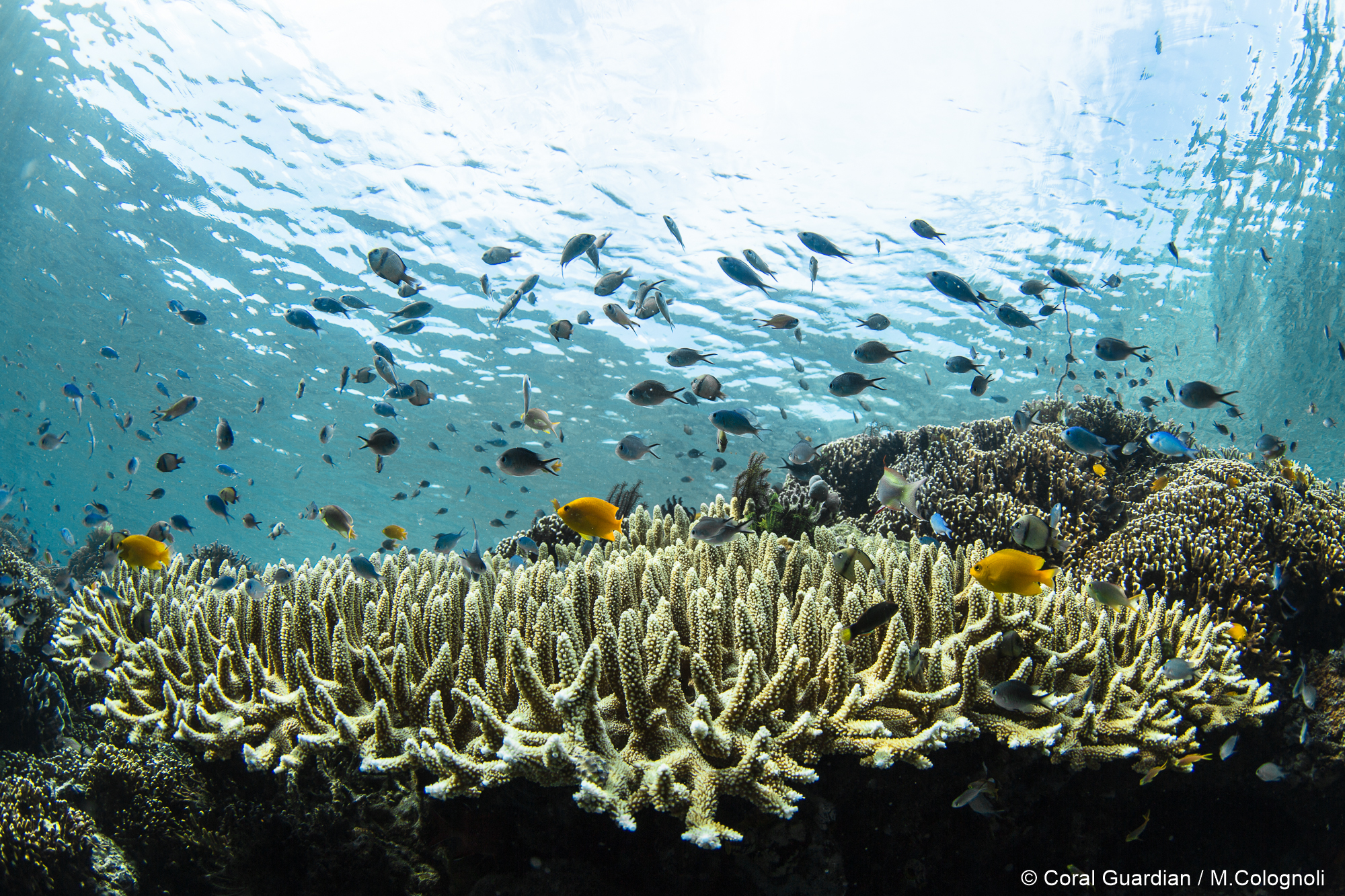Coral adaptation to climate change

The oceanic heat waves are getting closer and closer together. Over the last two decades, we have had four! Unfortunately, 2016 and 2017 were brutal for coral reefs. These successive bleaching episodes have severely affected the Great Barrier Reef, which stretches over 2300 km, impacting more than 61% of coral reefs.

Figure 1: Aerial view of the Great Barrier Reef in Australia.
A recent study, published in December 2018 in the journal Nature by Professor Terry Hughes’ team, still managed to surprise the scientific world. Indeed, in 2017, 20% less bleaching was observed than expected. These complex organisms were more resilient to this new heat wave. Various ecological theories predicted that different organisms would adapt to global warming, but this is the first time that this phenomenon has been observed directly in the oceans.

Figure 2: Bleaching curves for the years 2016 and 2017, with heat anomalies on the x-axis and the probability of severe bleaching on the y-axis. Source: Hughes, T. P., Kerry, J. T., Connolly, S. R., Baird, A. H., Eakin, C. M., Heron, S. F., … Torda, G. (2019). Ecological memory modifies the cumulative impact of recurrent climate extremes. Nature Climate Change, 9(1), 40-43. https://doi.org/10.1038/s41558-018-0351-2
For this study, Professor Hughes’ team sampled 606 reefs over the two bleaching events. 22.3% of the reefs experienced bleaching during both events, 21.8% were severely affected in the 2016 wave but not in 2017, and 9.2% were severely bleached only in 2017. Overall, the 2017 bleaching event was still devastating, as it mainly affected the central part of the Great Barrier Reef, whereas the 2016 bleaching event affected the northern part. These observations lead researchers to believe that corals have developed an ecological memory, allowing them to be more resistant. The different waves of bleaching would eliminate corals that are too sensitive to temperature variations, and would make those that are less vulnerable more resistant. Coral reefs affected in a less extreme way would recover their colour following this bleaching episode and develop an adaptation for the next one. In the coming years, the study of the ecological resilience of coral reefs will have to take into account their history as well as the emergence of climate disturbances. Professor Hughes and his team concluded the study by saying that in the current climate situation, for the study of the consequences of a specific climate event to be relevant, we will need to consider previous and future disturbances. In their view, looking at different climatic events will help us to understand the extent of future events.
Figure 3: A thriving coral reef

For further information: https://www.nature.com/articles/s41558-018-0351-2
Ces articles pourraient vous intéresser

Do clouds support us in coral protection?
Mystery in the Pacific: who saved coral reefs at the Society Islands? Could the presence of clouds in the sky improve the health of coral…
28 November 2023Tracking ocean temperatures in situ and from space
Written by: Florina Jacob and Laura Bastide Why monitor water temperature in coral restoration zones? Coral health is closely linked to water temperature. The…
26 June 2023
Sponsor Spotlight : Zepp Health
Tell us a bit about yourself 🙂 At Zepp Health, we’re on a mission to empower people to take control of their well-being. We…
19 June 2023
Donor spotlight : Charline Auvinet
Tell us a bit about yourself 🙂 After graduating a few years ago, I’m now a crime fiction editor. In this job, I have discovered…
17 January 2023
